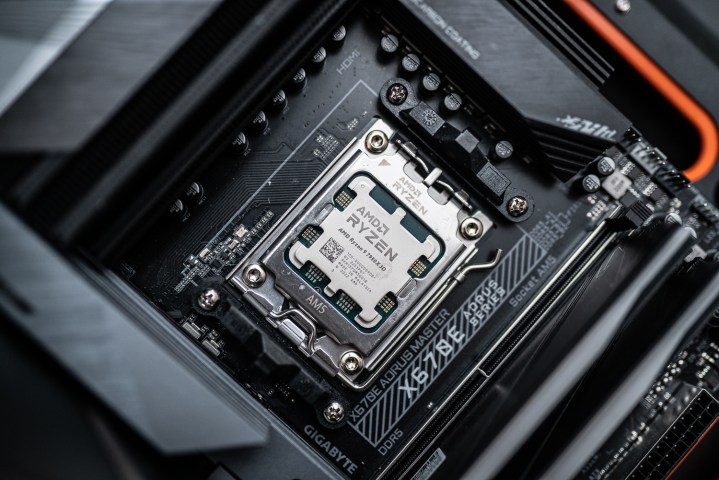
Alongside Ryzen 9000 CPUs, AMD is introducing a range of new motherboard chipsets. The new 800-series is the typical affair for the most part. The new X870 chipset forces PCIe Gen 5 across both the graphics and storage, and it mandates USB 4, while the new B850 chipset offers optional PCIe Gen 5 for the GPU and mandates it for storage. There’s a curious new addition you should avoid, though — the B840 chipset.
It sounds like a slightly downgraded version of the B850 chipset, and if you believe AMD, it’s supposed to sit between B-series boards and the previous A620 chipset. That’s not the case. The B840 chipset only comes with PCIe Gen 3 across both storage and graphics, which is actually a downgrade compared to the A620 chipset.
If you’re unfamiliar, AMD segments features between different chipsets. The X-series provides all the bells and whistles, usually accompanied by dense power arrangements for overclocking. The B-series is slightly cut down while still offering overclocking support, and the A-series strips out most features (including CPU overclocking) for a cost-effective solution. The B840 chipset shakes up that dynamic in a big way.

Not only is it common to find PCIe Gen 4 SSDs now, most graphics cards use PCIe Gen 4 as well. That latter point can have some serious performance implications, particularly with low-end GPUs. We saw that in action a couple of years ago with the RX 6500 XT, which was seriously bottlenecked with only four lanes of PCIe. It supports PCIe Gen 4, but running it on a Gen 3 socket vastly reduces the performance.
Storage is a big concern, too. Although you can still find PCIe Gen 3 SSDs, the vast majority of drives use PCIe Gen 4 now. We even have PCIe Gen 5 drives readily available — though for a steep price. PCIe Gen 4 is the standard in 2024, and it’s baffling that AMD isn’t supporting it on the B840 chipset.
It’s worth noting that this is an entry-level chipset. It still supports memory overclocking, and it only comes with USB 3.2, similar to the A620 chipset. There’s an argument for buying a B840 board if you have older drives and plan on using integrated graphics, or an older GPU that doesn’t need 16 lanes of PCIe Gen 4. My main concern is how the B840 board looks in comparison to the rest of AMD’s lineup.
Surely there will be buyers looking to score a motherboard deal that will stumble upon a cheaper B840 motherboard and assume it’s similar to the more expensive B850 options. If you find yourself in that situation, double-check the specs of the motherboard before picking it up. AMD hasn’t said when the 800-series is launching, but it should be after Ryzen 9000 CPUs arrive on July 31.





